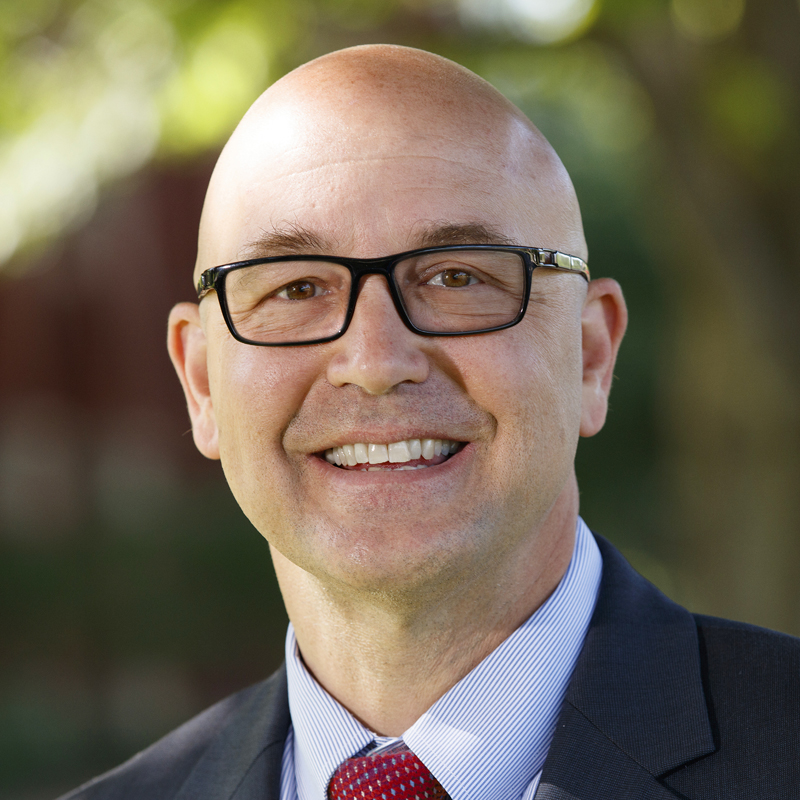
Science Literacy and the Next Generation
Michael Boehm looks at the university's role in the world's grand challenges
As the next generation of leaders is entering the educational pipeline, it’s important to have an emphasis on science, technology, engineering and mathematics (STEM) to solve the grand challenge of feeding 9 billion people by 2050.
“If we’re not paying attention to STEM, we’ve got big problems,” according to Michael Boehm, Vice President for Agriculture and Natural Resources at the University of Nebraska and Harlan Vice Chancellor for the Institute of Agriculture and Natural Resources (IANR) at the University of Nebraska–Lincoln.
“If you don’t appreciate science, how can you ever be an advocate for it, how can you write policy and how can you pass laws?” Boehm said.
Science literacy is a key initiative of IANR.
OPPORTUNITIES
Boehm sees STEM careers as vital to the food production industry. He said 40 percent of Americans were involved with food production in 1990; in 2000, fewer than 2 percent were involved in food production. This equates to a 20-fold decrease in the number of Americans who were directly involved with food production. Yet, from post-World War II to the year 2000, technology and advances in science allowed food production to double, Boehm said.
Agriculture is much more broad than a cow and a plow; it includes biochemistry, biology, molecular genetics, food as a tool for health, study of the gut microbiome and how metabolites impact health outcomes and cognition.
“As we think about food production and the global food system, there are many opportunities to attract more people to work on the grand challenge of feeding the world,” he said, and agriculture now includes these fields of study.
“Our work at IANR is focused on science. Agricultural literacy is critical to showcasing the range of opportunities to get involved, from genetics and genomics and precision agriculture, to nutrition and health outcomes,” he explained.
“Another opportunity is to more actively engage more people from underrepresented groups into our food production system,” he said.
EDUCATION AND POVERTY
According to Boehm, access to educational opportunity and to healthy, safe, nutritious food and clean water shapes society.
“In America, if you can’t read by the third grade, you are four times less likely to graduate from high school. If you don’t graduate from high school, you’re 62 times more likely to be incarcerated,” he said.
“I think part of what we’re focused on here at the institute is producing nutritious, safe, affordable food with fewer inputs so that we maintain the resiliency of our ecosystems but we’re also seriously interested in breaking cycles of poverty and thinking about things like food waste,” Boehm said.
Worldwide, 1 billion people don’t get enough to eat and another billion don’t have the right mix of calories. That means two out every seven people on Earth today are struggling, and that leads to instability, he said.
EFFECTING CHANGE
Looking at the Nebraska state economy, much of what is produced in the state is exported around the world. Boehm describes Nebraska as a living laboratory, allowing the institute’s scientists to delve into the issue of food security, to develop best practices that transfer to other parts of the world.
The university provides the opportunity to address issues related to raising food, crops and animals, along with maintaining a resilient ecosystem. This ultimately leads to the vitality of individuals and the communities, he said.
WATER
“In the course of an hour, any hour you pick, there’s 200 people who will die every hour because they don’t have access to fresh, potable water. And most of those are children. When you do the math, 200 people per hour, times 24 hours a day, times seven days a week, 365 days a year, we’re talking about a lot. Tens of millions of people, and most of those diseases are preventable but conflict and socio-economic issues get in the way,” he said.
Boehm’s education is in plant pathology; plant pathologists study plant diseases and the interaction between pathogens, the environment and plants, he explained. Through his work, Boehm has developed an appreciation for water security and access to safe fresh water.
“Water is going to be the thing that destabilizes or stabilizes the world. Here in Nebraska, not only do we have the science, technology, engineering and math, but we have a natural laboratory to actually put our best science and technology to work and we have the resilient ingenuity of the Nebraska farmers, producers, and ranchers who are willing to work with academics to actually put ideas into practice,” Boehm said.
Boehm said the nexus – the connection – of food, water and energy systems, along with Nebraska’s natural resources, is one of the strengths in the state. This systems-minded view describes the interdependence of these systems on each other in one landscape.
“I think if we just think about these three things colliding and use corn, and cattle, and ethanol, we have a pretty nice example of the food, water, energy nexus,” Boehm said.
“It also comes back to appreciating the full spectrum of what we have in America and bringing the ability of us to appreciate difference and have, through civil discourse, conversations about things that really matter. That’s why I think STEM and science literacy are important,” Boehm said.